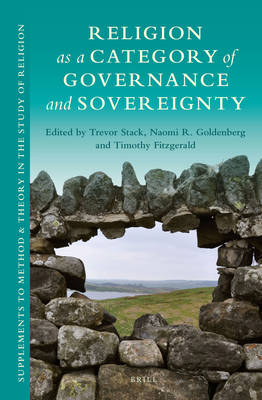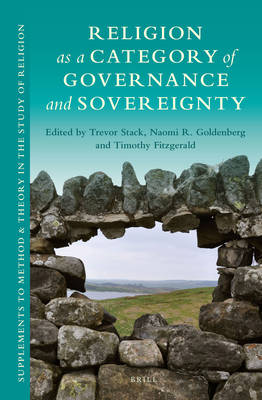
- Afhalen na 1 uur in een winkel met voorraad
- Gratis thuislevering in België vanaf € 30
- Ruim aanbod met 7 miljoen producten
- Afhalen na 1 uur in een winkel met voorraad
- Gratis thuislevering in België vanaf € 30
- Ruim aanbod met 7 miljoen producten
Zoeken
Religion as a Category of Governance and Sovereignty
€ 265,95
+ 531 punten
Omschrijving
Religious-secular distinctions have been crucial to the way in which modern governments have rationalised their governance and marked out their sovereignty - as crucial as the territorial boundaries that they have drawn around nations. The authors of this volume provide a multi-dimensional picture of how the category of religion has served the ends of modern government. They draw on perspectives from history, anthropology, moral philosophy, theology and religious studies, as well as empirical analysis of India, Japan, Mexico, the United States, Israel-Palestine, France and the United Kingdom.
Contributors are: Maria Birnbaum, Brian Brock, Geraldine Finn, Timothy Fitzgerald, Naomi Goldenberg, Jeffrey Israel, David Liu, Arvind-Pal Mandair, Per-Erik Nilsson, Suzanne Owen, Trevor Stack, Teemu Taira, and Tisa Wenger.
Contributors are: Maria Birnbaum, Brian Brock, Geraldine Finn, Timothy Fitzgerald, Naomi Goldenberg, Jeffrey Israel, David Liu, Arvind-Pal Mandair, Per-Erik Nilsson, Suzanne Owen, Trevor Stack, Teemu Taira, and Tisa Wenger.
Specificaties
Betrokkenen
- Uitgeverij:
Inhoud
- Aantal bladzijden:
- 348
- Taal:
- Engels
- Reeks:
- Reeksnummer:
- nr. 3
Eigenschappen
- Productcode (EAN):
- 9789004290556
- Verschijningsdatum:
- 27/05/2015
- Uitvoering:
- Hardcover
- Formaat:
- Genaaid
- Afmetingen:
- 150 mm x 226 mm
- Gewicht:
- 539 g

Alleen bij Standaard Boekhandel
+ 531 punten op je klantenkaart van Standaard Boekhandel
Beoordelingen
We publiceren alleen reviews die voldoen aan de voorwaarden voor reviews. Bekijk onze voorwaarden voor reviews.










